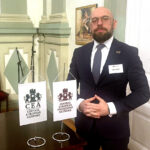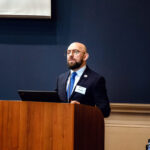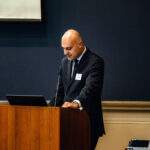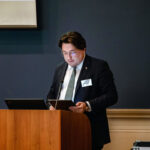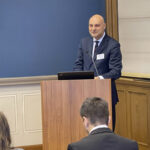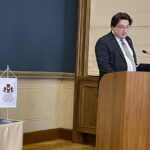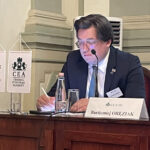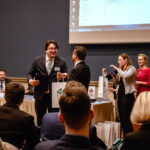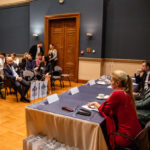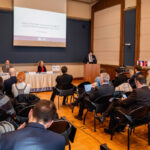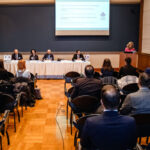The right to privacy in the digital age
2022-12-13
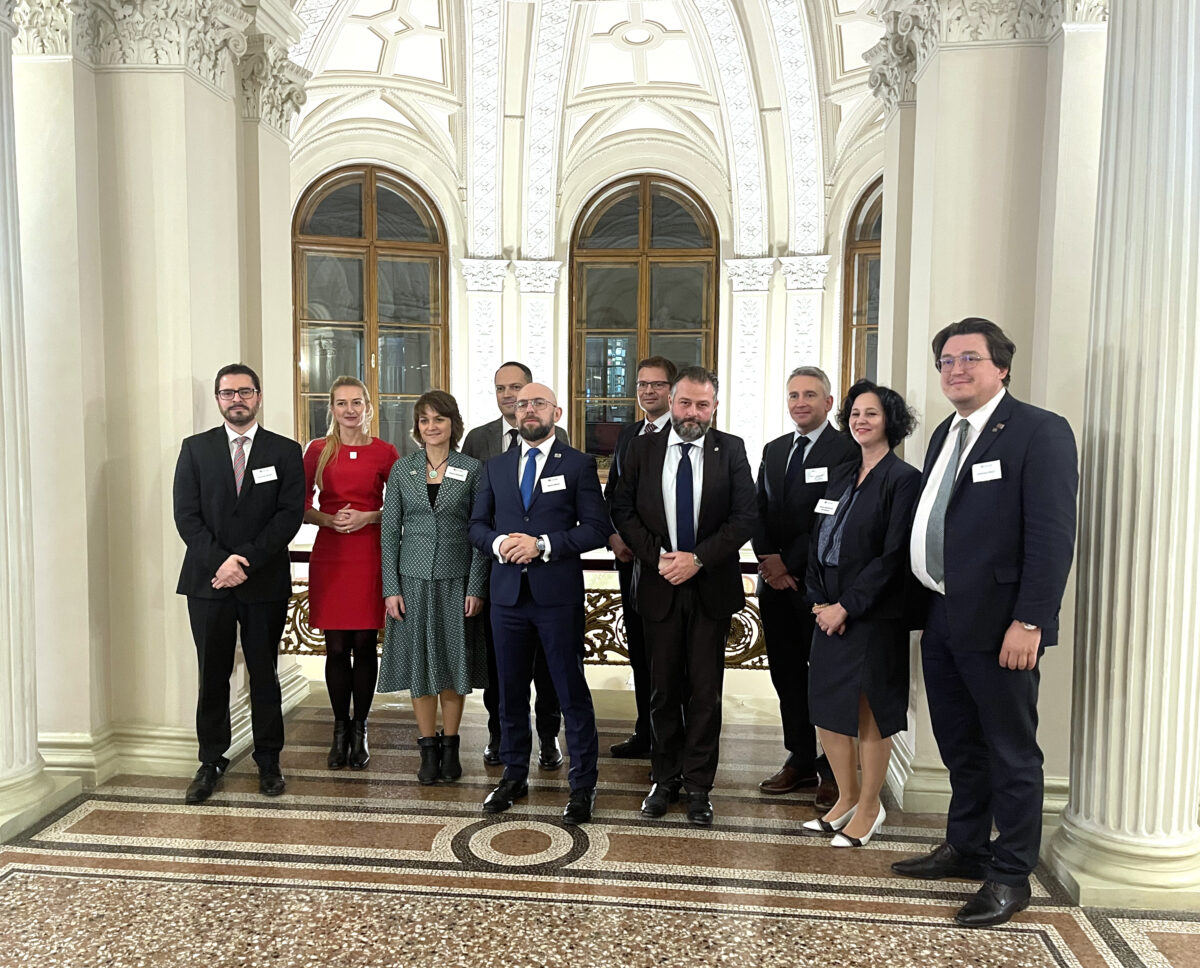
An international scientific conference on the right to privacy in the digital age was held at the Hungarian Academy of Sciences. Academics from the Czech Republic, Croatia, Poland, Hungary, Serbia, Slovakia, Slovenia participated in the legal debate of Central Europe. The conference on December 1, 2022 was opened by the director of the Institute of Justice, Prof. Marcin Wielec.
The IWS director introduced a research group on the right to privacy (“Right to Privacy”), which aims at comparative analysis of the law with the application of modern technologies. Professor Marcin Wielec said that the research group succeeded in writing a comparative monograph consisting of 9 chapters on the right to privacy in the various Central European countries entitled “The Right to Privacy in the Digital Age. “The Right to Privacy in the Digital Age. Perspective of Analysis on Certain Central European Countries”. The research group has prepared 9 scientific articles awaiting publication, organized two international scientific conferences, and held 18 dissemination events.
The director also introduced the composition of the professorial group: Prof. Marcin Wielec (head – Poland ); Prof. András Koltay (Hungary), Prof. Dusan Popovic (Serbia), Prof. David Sehnálek (Czech Republic), Prof. Katarína Šmigová (Slovakia), Prof. Marta Dragičević Prtenjača (Croatia), Prof. Vanja-Ivan Savić (Croatia), Prof. Matija Damjan (Slovenia), Dr. Bartłomiej Oręziak (Poland).
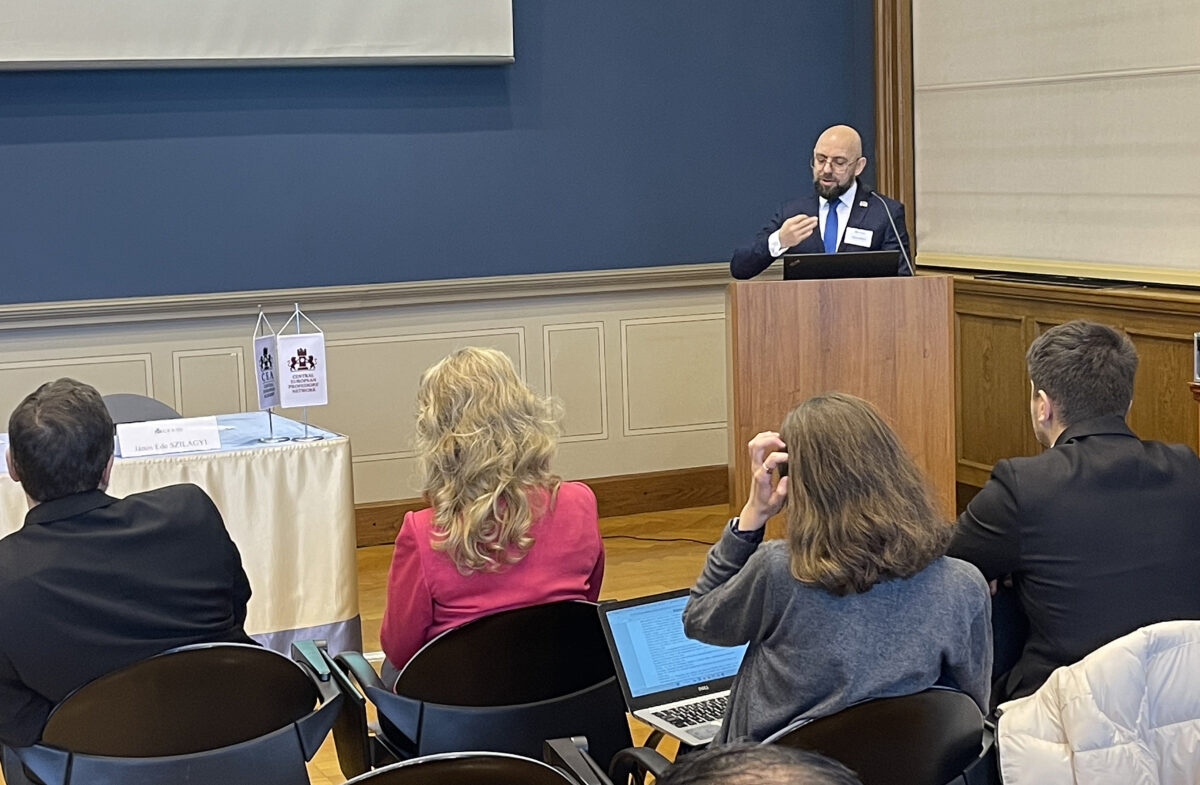
Deputy Director Prof. Pawel Sobczyk also spoke on behalf of the Institute of Justice. He thanked the extremely fruitful cooperation of the conference organizers with the IWS in 2022 and the creative work of the team established within the Central European Professors Network. He noted that the concepts developed in 1890 in the pages of the Harvard Law Rewiev by Samuel D. Warren and Louis D. Brandeis have not lost their relevance. – On the contrary, because the titles of the papers proposed by the speakers confirm that the right to privacy is constantly evolving obliging lawmakers to protect more aspects of it,” said Prof. Sobczyk.
The organizers (Miskolc University – Central European Academy) of the conference also planned the presentation of an international monograph entitled. “The Right to Privacy in the Digital Age”, compiled by a team of distinguished scholars under the direction of Prof. Marcin Wielc. The book will soon be published by Central European Academic Publishing in cooperation with the Ferenc Mádel Institute of Comparative Law in Hungary.
According to Prof. Pavel Sobczyk, two dominant approaches on the right to privacy are noticeable in the research articles, coming from Croatia, the Czech Republic, Poland, Serbia, Slovakia, Slovenia and Hungary. According to the first, there is a need to increase the scope and forms of the level of privacy protection. According to the second approach, there are numerous restrictions on the sphere of privacy, which are justified by state institutions by the need to protect such values as state security, public order and public health, for example.
During the first panel of the conference, Prof. Marcin Wielec (Director of IWS), gave a paper on contemporary legal dilemmas entitled ‘The Dilemma of a Positive Invention Regarding the Foundations of the Right to Privacy. ‘The Dilemma of a Positive Invention Regarding the Foundations of the Right to Privacy’. During the speech, the director addressed the issues of the heterogeneous structure of the right to privacy and, consequently, its diversity in protection and use in the field of private law and public law.
The second panel on behalf of the Institute featured Dr. Bartlomiej Oręziak (Coordinator of the IWS Center for Strategic Analysis), presenting a paper on the right to privacy in light of the constitutional jurisprudence of the Republic of Poland, entitled ‘The Right to Privacy. “Range of the Right to Privacy in the light of selected Polish Constitutional Court Cases”. The paper discussed three selected rulings of the Polish Constitutional Court (dated December 12, 2005, case no. K 32/04; March 5, 2013, case no. U 2/11; November 25, 2021, case no. Kp 2/19).
The Hungarian Conference on the Right to Privacy in the Digital Age titled. “The Right to Privacy in the Digital Age – in specificterms” was organized within the framework of the Central European Professors Network 2022 research project. The project is being implemented with the active participation of seven countries (Czech Republic, Croatia, Poland, Hungary, Serbia, Slovakia, Slovenia). The main issues of the project include: parental responsibility, protection of the environment, protection of national symbols and privacy rights.



